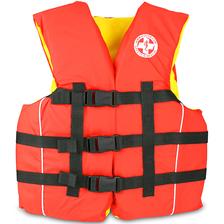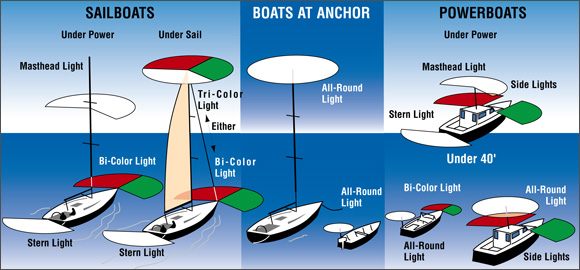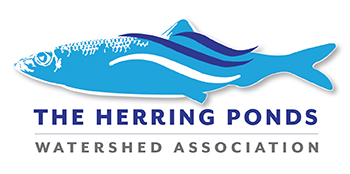As summertime approaches, friends and family head to Great Herring Pond for fun on the water. While those long lake days conjure up images of bathing suits, sunscreen, fishing and water skis, we can’t forget that a lovely day on the pond could quickly turn dangerous when safety isn’t top of mind.
Keep your loved ones safe on the water by learning and following these important boating and water sports rules.
 Always wear a life jacket. It can be tempting to ditch the life jacket, especially if you feel confident in your abilities as a swimmer. But even when a life jacket isn’t required, it’s a good idea to wear one. Accidents on the water cannot always be predicted or prevented, and even strong swimmers may unexpectedly find themselves in a dangerous situation. In Mass over the last 10 years, 85% of the victims who died in boating accidents did not use life jackets. Many of these deaths would have been prevented if a life jacket had been worn. Wear a life jacket whether on a motor boat, jet ski, sailing, kayaking or on a paddle board. Federal regulations require that all children under 13 years of age wear a U.S. Coast Guard approved life jacket at all times while out on the water. Boats are also required to have U.S. Coast Guard approved life jackets for every person on board.
Always wear a life jacket. It can be tempting to ditch the life jacket, especially if you feel confident in your abilities as a swimmer. But even when a life jacket isn’t required, it’s a good idea to wear one. Accidents on the water cannot always be predicted or prevented, and even strong swimmers may unexpectedly find themselves in a dangerous situation. In Mass over the last 10 years, 85% of the victims who died in boating accidents did not use life jackets. Many of these deaths would have been prevented if a life jacket had been worn. Wear a life jacket whether on a motor boat, jet ski, sailing, kayaking or on a paddle board. Federal regulations require that all children under 13 years of age wear a U.S. Coast Guard approved life jacket at all times while out on the water. Boats are also required to have U.S. Coast Guard approved life jackets for every person on board.
Know your hand signals when skiing or tubing. Water skiing and tubing while being towed by a boat is a fun and popular pond activity. But before your boat speeds off into the open waters pulling a skier behind it, make sure that everyone understands hand signals so that those on the boat can communicate with those on the water. Hand signals allow non-verbal communication (such as “get me back in the boat,” “I’m okay,” and “I’m done”) and can allow the person on the water to tell the boater to go faster or slower, or turn left or right.
When boating always someone to be the “spotter.” It’s easy to get caught up in the social side of boating and forget that your vessel shares the lake with a number of other vessels and swimmers. To ensure that someone is always keeping an eye on the water, assign someone on your boat to be the official “spotter.” The job of the spotter is to keep an eye out for other people on the water and to alert the captain of the boat to any approaching hazards. This is especially important when you are towing a skier or tube, the spotter needs to advise the captain of wellbeing and safety of those being towed.
Riding jet skis is a popular activity on Great Herring Pond, but it can also involve a serious risk for injury. There was an unfortunate jet ski accident on White Island Pond last year in which a young woman was seriously injured when thrown from the jet ski she was a passenger on when two jet skis collided. Luckily she had a life jacket on and an off duty fire fighter was able to rescue her.
For everyone’s safety please follow the Massachusetts Boating Safety Rules regarding operation of jet skis.
* Life Jackets must be worn by all riders.
* Absolutely no towing behind a jet ski.
* Drivers must be at least 18 years old (16 with a Mass Safe Boating certificate.)
* Operate 150 ft. from shores and 150 ft. from all other crafts and swimmers.
* The coves present a particular safety issue as they are small areas with lots of activity and swimmers. Use extra caution!
Plymouth bylaw 134-3 states: on Great Herring Pond motorboats are restricted to headway speed between the hours of sunset or 7:30 p.m. whichever comes first, and 9:00 a.m. seven days a week. Headway speed is defined as six miles per hour. Maximum speed is 45 mph.
Use navigational lighting between sunset and sunrise.

Never boat under the influence. Operating a vessel while intoxicated is a MA and federal offense. The sun, wind, noise, vibration, and motion common to the marine environment intensify the effect of alcohol and drugs and dramatically affect judgment, balance, coordination and reaction time.
Don’t go out alone. While alone time on the water can sound like the ultimate escape, one of the first rules of water safety is to never go out alone. Whether swimming, paddle boarding, kayaking, boating or diving, bringing along a buddy can help ensure your safety should you find yourself injured. If you do choose to go out on the water alone, let people know where you are going and when you expect to return home.
